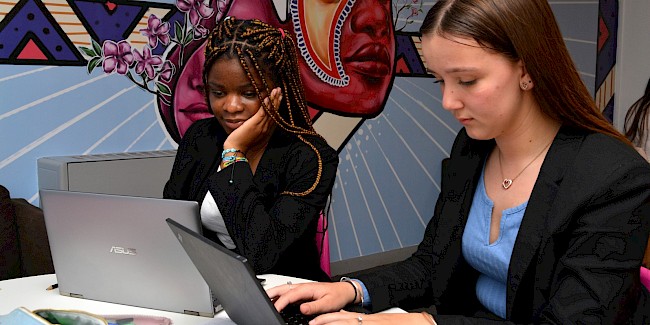Engagement and Feedback
What are your expectations for my child’s engagement and the support that we as parents and carers should provide at home?
We expect our students to fully engage with remote learning unless they are unwell or unable to engage for other reasons. Attendance and engagement in the 100 minute lessons is monitored using a digital engagement feature on Microsoft Teams. Non-attendance is tracked and monitored by teaching staff and non-attendance is then followed up.
Where a child is not engaging, or is not engaging at the standard that we would expect from them, we will contact families to understand the barriers and provide support to alleviate these.
How will you check whether my child is engaging with their work and how will I be informed if there are concerns?
Engagement is monitored through the insights feature on Microsoft Teams. We will follow our school absence procedures to ensure we know where your child is and the reason for not logging onto to their Teams session- this will include a phone call home.
Other forms of communication with parents include emails and telephone calls as well as the use of ParentMail. We are also currently planning virtual parent’s evenings.
Throughout any period of remote learning, it is essential that you continue to work with the school to ensure that your child is able to successfully return to face to face learning when it is safe to do so.
If local restrictions allow and we believe it is absolutely necessary, the school will also visit the family home to ensure that we are able to ascertain any issues relating to remote learning as well as your family well-being and provide support where practically possible.
How will you assess my child’s work and progress?
Feedback can take many forms and may not always mean extensive written comments for individual children. For example, we may use MS Forms to create quizzes that are marked automatically, questioning during live lessons sessions as well as giving written feedback to work uploaded to MS Teams.
We will apply the principles of our school based assessment policy to all learning to ensure that the students continue to make links between remote learning and school base learning. We will conduct formal assessment where we can so that we can track progress from starting points and consider where students are in relation to end of year targets as well as identifying any vulnerable knowledge that needs some intervention.
